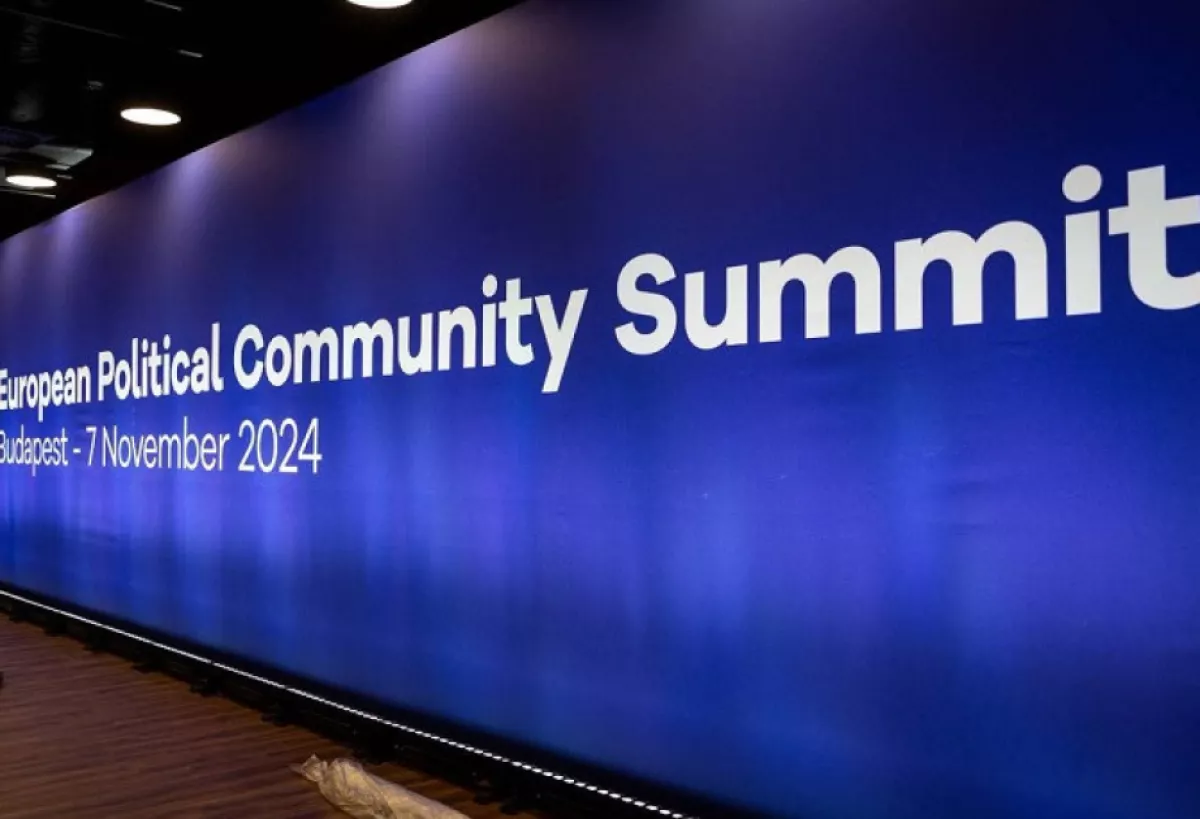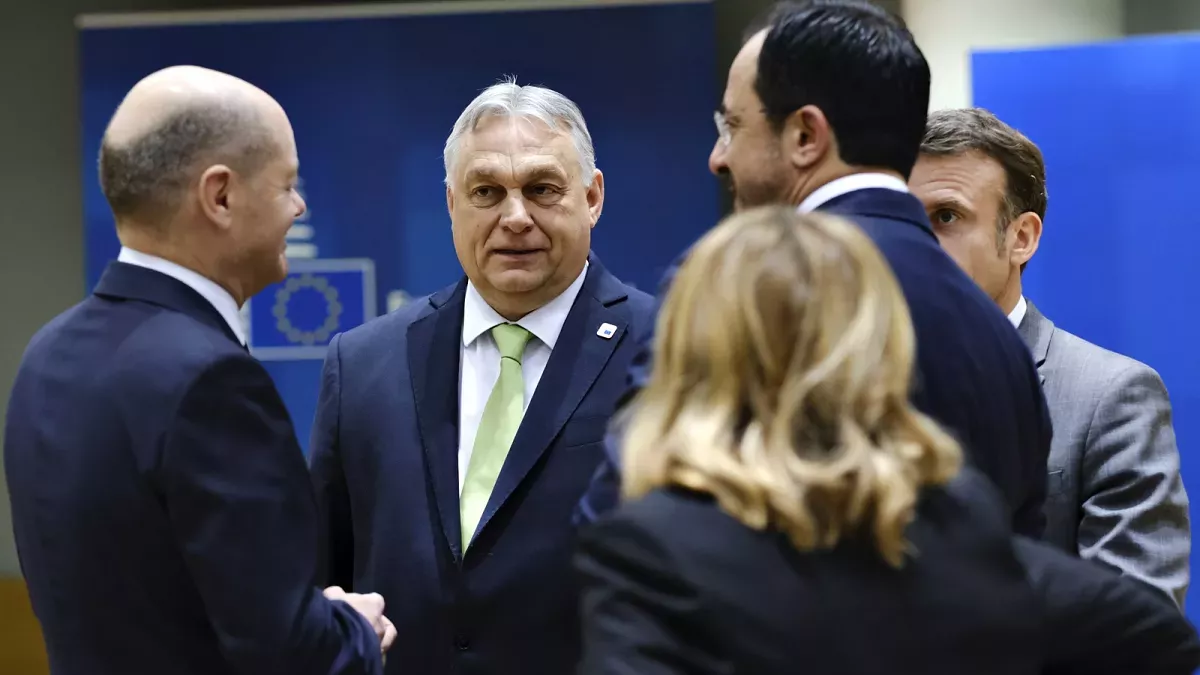Trump's victory exposes EU's double standards on foreign policy Leaders shift tone
Donald Trump's resounding victory in the US presidential election immediately revealed the true nature of European leaders who, for the past few months, had rhetorically "demolished" Trump, then still a presidential candidate. However, since November 6, as if by magic, the heads of major European states have begun almost competing to express pro-Trump sentiments. Fear has gripped the European leaders, which was vividly evident during the two summits held consecutively last week in Budapest: the European Political Community (EPC) and the informal European Union summit.
First and foremost, the mere fact that both events were held in Hungary, a country from which European leaders had previously loudly distanced themselves, clearly indicates that they suddenly realized: there was no need to openly politically "demonize" Hungarian Prime Minister Viktor Orban, who had initially and openly advocated for Trump's victory. Moreover, the proceedings of both summits, during which, unlike previous "political gatherings," anti-Orban statements were practically nonexistent, confirmed the shift in the EU leaders' focus.
In this regard, with rare exceptions, we will not emphasize which specific decisions were made at each of the two summits, as this detail is not particularly crucial. Therefore, we will only highlight some nuances that took place in Hungary’s capital at the end of last week. Naturally, one of the discussed topics was aid to Ukraine, in the context of which Orban emphasized that the previously supported decision by the majority of EU countries to provide 50 billion euros in financial assistance to Kyiv, in light of Trump's victory, was now "an open issue."

Moreover, experts pointed out that both European Commission President Ursula von der Leyen and European Council President Charles Michel gave somewhat evasive answers when asked about future EU funding for Ukraine if the Trump administration decided to reject this approach. Von der Leyen referred only to the 50 billion euros in macro-financing, plus a similar loan amount previously agreed upon by the G7 countries, which "should be enough for Kyiv until 2026." Michel, with little enthusiasm, confirmed the principle that "nothing about Ukraine without the Ukrainians."
Regarding Trump’s possible stance on this matter, Michel cautiously expressed hope that he would understand the threat posed by Russia (along with China, Iran, and North Korea) not only to European security but to the entire global order. Michel also echoed this cautious tone, stating that "Showing any vulnerability to the Kremlin risks emboldening other regimes to violate international law."
Similarly, NATO Secretary General Jens Stoltenberg expressed his position in a similar tone, cheerfully stating that during his first presidential term, Trump encouraged the NATO member states to exceed the two per cent defence spending target. He then expressed confidence that soon, NATO members will spend more than 2% of their GDP on defence.
Against this backdrop, the official EU summit stream did not feature an address by Ukrainian President Volodymyr Zelenskyy, who had stressed the need for sufficient weapons, not just support for peace talks. Additionally, a cooperation agreement between Kyiv and Budapest was not signed due to Orban's refusal to include a provision in the document supporting Ukraine's NATO membership.
Furthermore, the European Union's relatively soft stance toward the US was evident in discussions in Hungary about preventing potential trade wars, particularly regarding Trump’s campaign promise to raise tariffs on European goods by 10%.
For example, Finnish Prime Minister Petteri Orpo, acknowledging the risk of such a scenario, called for influencing Trump’s future policy. Ursula von der Leyen also referenced her conversation with Trump after his victory, where she expressed support for increasing US LNG exports to the EU in exchange for reduced energy supplies from Russia and emphasized the importance of constructive cooperation between the US and the EU. Meanwhile, German Chancellor Olaf Scholz, facing a major government crisis at home, framed the growth and strength of the US in terms of American trade with the world, in both directions, suggesting this as the foundation for developing a shared policy.

Overall, the fear of Trump’s actions was so paralyzing for EU leaders that they even postponed discussions on the issue of Georgia. It turned out that the artificially manufactured topic of "the lack of democracy in Georgia," which had recently become one of the leading issues in Europe, was not as pressing for Brussels as it seemed, except for a brief call from Charles Michel to Georgian Prime Minister Irakli Kobakhidze to "return to the path of European integration."
Once again, the world has witnessed the EU's "double standards," where the initial rhetoric of EU leaders contradicts their actions. As a result, some Western media outlets speculated that EU leaders might now view Viktor Orban as a figure capable of improving relations between Europe and the US. This shift is seen by some observers as the main backdrop to Brussels’ change in tone toward Hungary.
For instance, while Ursula von der Leyen, after Orban’s statement about Hungary’s unwavering stance on the Russian-Ukrainian issue, remarked that military assistance to Ukraine would strengthen the security of the entire world, she did not respond to the immediate comment from Hungary’s Prime Minister that "now is not the time to discuss disagreements." "Stop killing each other now, and then we can talk about what constitutes an acceptable, lasting, long-term peace for all parties," he said.
Further developments are awaited, particularly following the adoption of the "New European Competitiveness Pact" by EU leaders, which aims to boost economic growth within the organization and narrow the widening gap between the US and China. In this context, Europe will closely monitor Donald Trump's reaction to the discussions held in Budapest.








